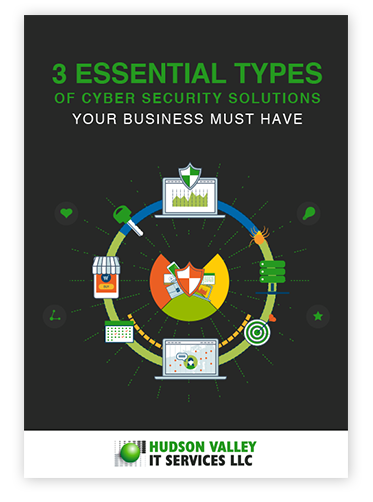Viruses, a kind of malware, were once just nuisances that could be squashed by a reliable antivirus program without having to involve IT technicians. These days, malware is the biggest threat to businesses and their data. To give you an idea, the global economic toll of cybercrime, including malware, has grown to $2 trillion in 2019. Meanwhile, ransomware, a form of malware that holds network data hostage by encrypting it, cost businesses and individuals $11.5 billion in the same year.
Malware comes in many shapes and sizes. It has also become very cheap for even would-be hackers to unleash them upon businesses, making attacks more prevalent in recent years. To protect your enterprise, you need to know about these threats and how they could damage your business.
Aside from ransomware, here are some other forms of malware that your business should prepare for:
- Viruses are harmful programs that easily replicate or spread. They may slow down computers or disable an operating system, but for the most part only cause minor glitches, like forcefully changing your desktop wallpaper.
- Worms are designed to incapacitate entire networks by rapidly spreading to several computers via emails.
- Trojans (Trojan horses) are disguised as harmless files or programs, such as Word documents and email attachments. Once it is in a user’s computer, it can do damage, such as delete data and create backdoors around security processes.
- Spyware can install themselves and work quietly in the background, collecting, tracking, and stealing data or slowing down a computer’s resources. They normally install themselves onto computers when a user accesses a website.
- Rootkits are malware that are difficult to detect even by expert monitoring tools. They now often come bundled in cryptocurrency applications.
These malicious programs normally do two things: one, they gain access to a computer network; and two, they damage it in a number of ways. Critical business systems and software can go down or become useless. Or they can cause a data breach, where business data is illegally accessed. Here’s a more detailed rundown of how malware can affect your business.
Disruptions and downtime
Have you considered how your business would be impacted if access to crucial data were forcefully taken away? One of the possible consequences to take into account is downtime. Every hour of downtime can cost tens and even hundreds of thousands of dollars.
By attacking data and systems, malware can cripple the IT backbone of a company’s operations. This can involve the hijack, alteration, or destruction of critical business data.In effect, malware can freeze critical business processes. For instance, if the software on your network is hijacked by ransomware, you can’t serve clients.
Moreover, if customer data has been lost or tampered with, a business may never recover. In the case of healthcare, malware attacks can potentially result in life-or-death situations. Much-needed care to patients can be delayed if services that rely on IT or data are shut down.
Damaged reputation
Most enterprises store sensitive customer and client information in their data centers and networks. If this data is stolen, it can be used in ways that can harm your customers, such as financial fraud and identity theft. As an organization entrusted to safeguard this information, tampering or breach of data will harm your reputation. No return business will likely come from these customers ever again.
Download our free eBook!
Cybersecurity can be tricky and expensive. Our free eBook, 3 Essential types of cyber security solutions your business must have will help you understand just enough to make the right call when it comes time to decide how to make everything work with the budget.
Not only that, but potential investors and potential talent will stay away. People will think twice to invest in or work with a company with a proven track record of mishandling critical assets like customer data.
Other financial losses
It is possible that you will have to pay damages to employees and customers whose data was lost or stolen through a malware attack. Related expenses often include legal fees incurred to deal with disgruntled customers suing your business.
In trying to recover after a malware attack, other possible financial costs will include forensic fees used to assess what happened and how to prevent it. There may also be regulatory fines due to compliance violations of the Health Insurance Portability and Accountability Act of 1996 (HIPAA) and the General Data Protection Regulation (GDPR), for which your company could be liable. Cybersecurity costs will naturally follow as part of the prevention process.
Most businesses recognize the dangers of malware. But like most businesses, your ultimate challenge is how to prevent malware attacks. There are many solutions out there, each with their own advantages, limitations, and drawbacks. But the only truly effective solution is to have a comprehensive, multilayered cybersecurity strategy.
If you are a small- and medium-sized business, you may not have the budget for this kind of security strategy. The best alternative is finding a security partner, an expert who will implement a variety of solutions and protocols to secure your company’s network and data.
Hudson Valley IT is a managed services provider with expertise in providing clients with a robust security environment that not only protects your infrastructure but also enhances your business operations. If it’s help with security compliance, data protection, risk management, identity and access management, cyberthreats, or incident planning and response you need, we have you covered. Contact Hudson Valley IT today.
Like This Article?
Sign up below and once a month we'll send you a roundup of our most popular posts



